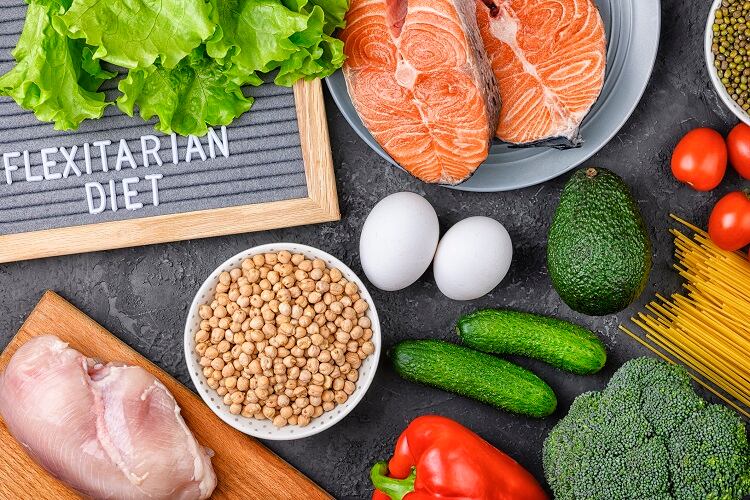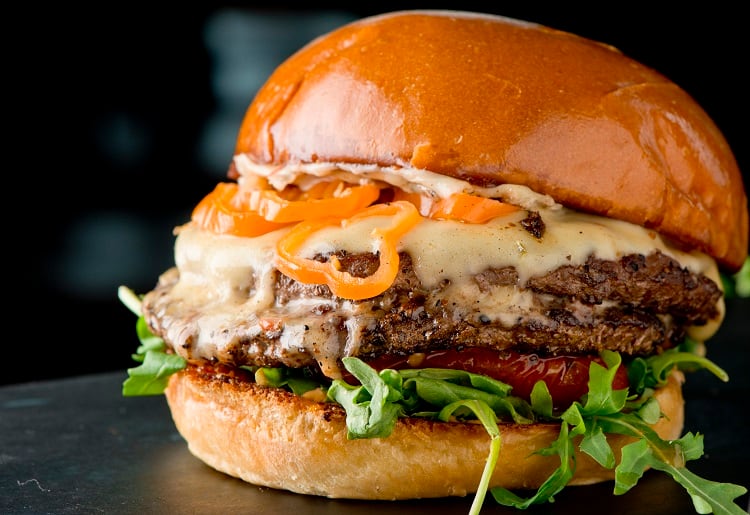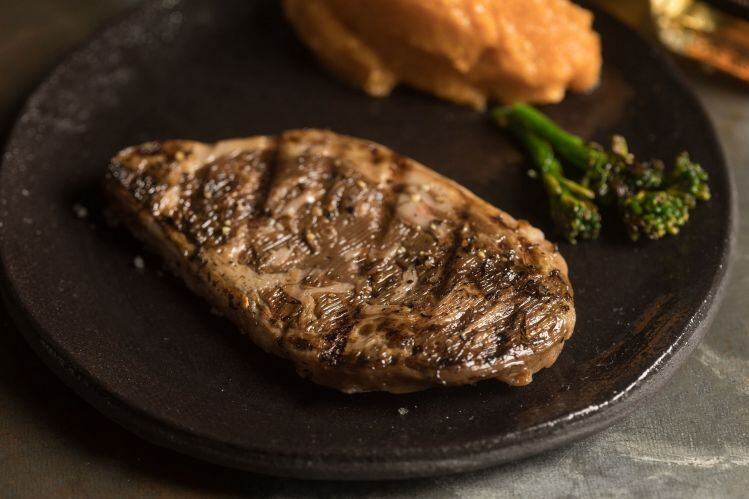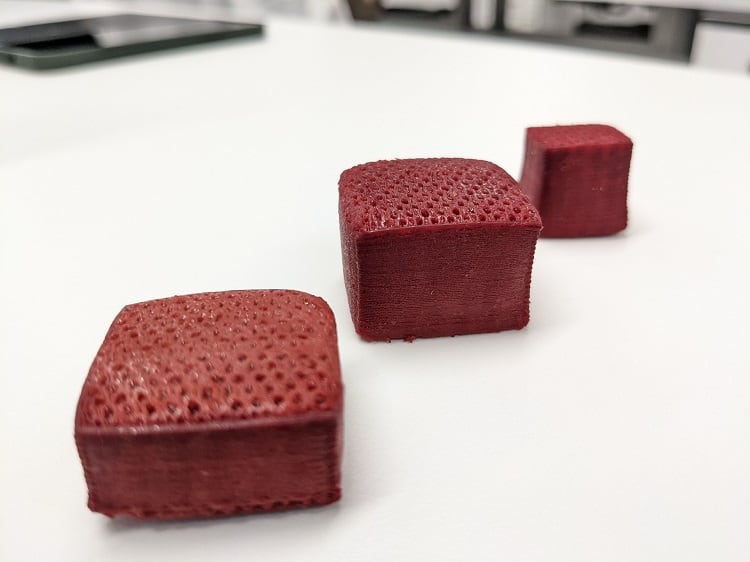Novel ‘blended’ or ‘hybrid’ products, whereby a portion of meat is replaced with plant-based ingredients, have been fighting to gain market share in recent years.
In the UK, retail majors Waitrose, Sainsbury’s, Tesco, and M&S have incorporated hybrid meat products into their own-label ranges.
Elsewhere in Europe, start-ups are also tapping into the trend. Austrian company Rebel Meat, for example, makes its Rebel Meat Burger from 50% beef and 50% plant-based ingredients.
Yet considering the potential environmental and sensory gains to be made from using meat, but less of it, the category has not taken off in the way some expected. FoodNavigator asks: why not?
The benefits of blending
From a sensory perspective, hybrid products could be considered a no brainer. Certain popular plant-based proteins provide taste, texture, and mouthfeel challenges that can be counteracted by the inclusion of meat.
One of the hybrid category’s key objectives is to provide consumers with ‘the proper experience’ of eating meat from a taste and mouthfeel perspective, explained Leonardo Rubio Anselmi, Strategic Marketing Manager of Beverages and Nutritional Bars, IFF.
“I imagine you can make really good products [blending plant-based and meat protein],” agreed Stefan Uhlamm, Head of Cereals, Business Unit Cereals, Nuts and Pulses at Döhler. “You can overcome the challenges of using proteins and texturisers, and so on, to produce great products.”
The ingredients expert continued: “From a product point of view, I’m absolutely convinced this is a great approach.”

Another key factor driving hybrid NPD concerns the environmental impact of meat production. According to the UN Food and Agriculture Organization (FAO), emissions from global livestock total 7.1 gigatons of CO₂e per year, with animal agriculture accounting for 14.5%% of all anthropogenic GHG emissions.
Hybrid products can help consumers reduce their meat intake, and consequently, their environmental footprint. “[Blended products] are inherently flexitarian, because you reduce your meat consumption directly,” explained Döhler’s Uhlamm at the FoodNavigator 2021 Digital Summit: Positive Nutrition.
Indeed, the flexitarian movement is front of mind for Austrian start-up Rebel Meat, which sells its hybrid burger into retail and foodservice. Stressing that “meat production doesn’t have to be harmful to the environment if done sustainably”, CEO Philipp Stangl suggested the hybrid category has significant market potential.
“While some consumers might be ready to simply eat vegetarian three out of four times, our own interviews show that most are not.
“This is in line with recent evidence showing switching to a 100% plant-based diet is very hard to sustain for most people,” he told this publication, adding that 84% of vegetarians returned to eating meat within a year.
The Rebel Meat CEO continued: “Add in recent scepticism about highly processed meat replacement products and you get quite a good target group for hybrid meat products.”
‘Blurry’ positioning impacting consumer acceptance
With so many advantages to the blended plant-based and meat protein concept, it is surprising the category has not taken a greater share of the market. Some experts put this down to hurdles in brand positioning.
In Finland, Annika Boström-Kumlin, who heads up marketing at plant-based brand Beanit, said she has come across some ‘good examples’ of hybrid products. However, the category ‘doesn’t really seem to be taking off’, she told the FoodNavigator Summit.
The positioning of hybrids, as a product that straddles meat and plant-based categories, is ‘a little bit blurry’, she explained, suggesting an association between marketing and consumer acceptance. “For some reason, at a product level, it doesn’t work.”
Döhler’s Uhlamm believes the concept itself has legs, but similarly pointed to concerns surrounding positioning.
Hybrids are known to work, he told delegates. Citing examples from other sectors such as the car industry, the ingredients expert said there is proof of ‘hybrids working perfectly’. In a plant-based and meat context, however, the ‘biggest challenge is one of positioning’.
“I do not know whether the current flexitarian – who may steer their consumption intake towards a Monday to Friday plant-based, and weekend traditional animal-based [diet] – is [responding]…in a good way to [hybrid products’] positioning and marketing.”

Rebel Meat, however, is not disheartened by potential challenges facing hybrid marketers. “While the positioning of hybrids may be hard in the beginning, as the market becomes more educated about the advantages of such products, this weakness turns into a strength,” Stangl told this publication.
“We have seen a strong uptake in [our products] as well as general interest in hybrid meat products since the beginning of the year. Revenues are starting to take up as well, albeit from a small level.”
Financial barriers?
Another barrier to consumer acceptance may well lie in price. Given how manufacturing infrastructure is currently used – to produce either 100% meat or 100% plant-based products – it is easy to see how a blended product could cost more in production.
This is Dom Dalton’s argument. The General Manager of Soulfresh UK – which counts brands Butty Bruce, The Goods, Eaty, Pico, and Wildly Good amongst its stable – believes a hybrid product “would probably cost more to make than a fully plant-based product or a fully meat product”.
This could serve to increase consumer confusion, the general manager suggested. “It would be quite confusing, from a consumer perspective, to understand [the purpose] of hybrid products…I don’t think it is something that will take off.”
Rebel Meat’s Sangl acknowledged the challenge of price. But like everything new on the market, suggested economies of scale can, and will, weigh in over time.
“The biggest problem in consumer acceptance, especially for challenger brands in the hybrid meat space, is the relatively small production volumes, and therefore the comparably high costs,” we were told.
“This will remain a problem for the foreseeable future, but eventually hybrids should be more affordable than 100% meat products, especially taking into account possible CO₂ taxation.”
Plant-based x cultivated fat potential
Carlotte Lucas, Corporate Engagement Manager at the Good Food Institute (GFI) Europe, said she sees potential in another form of hybrid product.
“We’ve seen some blended products in the past between plant-based protein and conventional meat, and these products maybe haven’t been as successful,” she told delegates at the FoodNavigator Summit. “But something that I think we will start seeing in the future…is blended products between plant-based protein and cultivated products.”
Cultivated fat is one area ripe for blended innovation, the engagement manager continued, acknowledging that this ‘highly innovative’ technology has yet to make it to market.
London start-up Hoxton Farms is doing just that: cultivating animal fat for plant-based alternatives. Unsurprisingly, founder duo Ed Steele and Dr Max Jamilly see ‘huge potential’ for cultivated fat to combine with plant-based protein in ‘novel ways’ that ‘far outperform what we have on the market today’.
“Fat is the most important sensory component of the meat that we eat, and it’s real animal fat that is missing from plant-based products. New technologies in the alternative protein space closely mimic the texture of muscle, but don’t taste or cook like meat without animal fat,” explained Dr Jamilly.

“In our earliest experiments at Hoxton Farms, we added small amounts of traditional animal fat to plant-based products to prove that they completely transform these foods for the better. With our increasing ability to tailor our product, we can grow fats with the exact properties required by the plant-based meat companies that we work with.”
From a brand positioning perspective, Hoxton Farms is not concerned. “Unlike traditional meat x plant protein hybrids, we don’t believe that cultivated fat x plant protein hybrids blur lines between existing categories,” Steele told this publication.
“We have the same goal as the plant-based meat companies that we work with: to remove intensive animal agriculture from our food systems. Consumers understand our mission and are looking for products that taste and perform much better than the current options.”
Missed any of the FoodNavigator Digital Summit 2021: Positive Nutrition? Don’t worry, you can still access all of our sessions and handouts, which will be available on-demand for the next 90 days. Click here to REGISTER FOR FREE.





